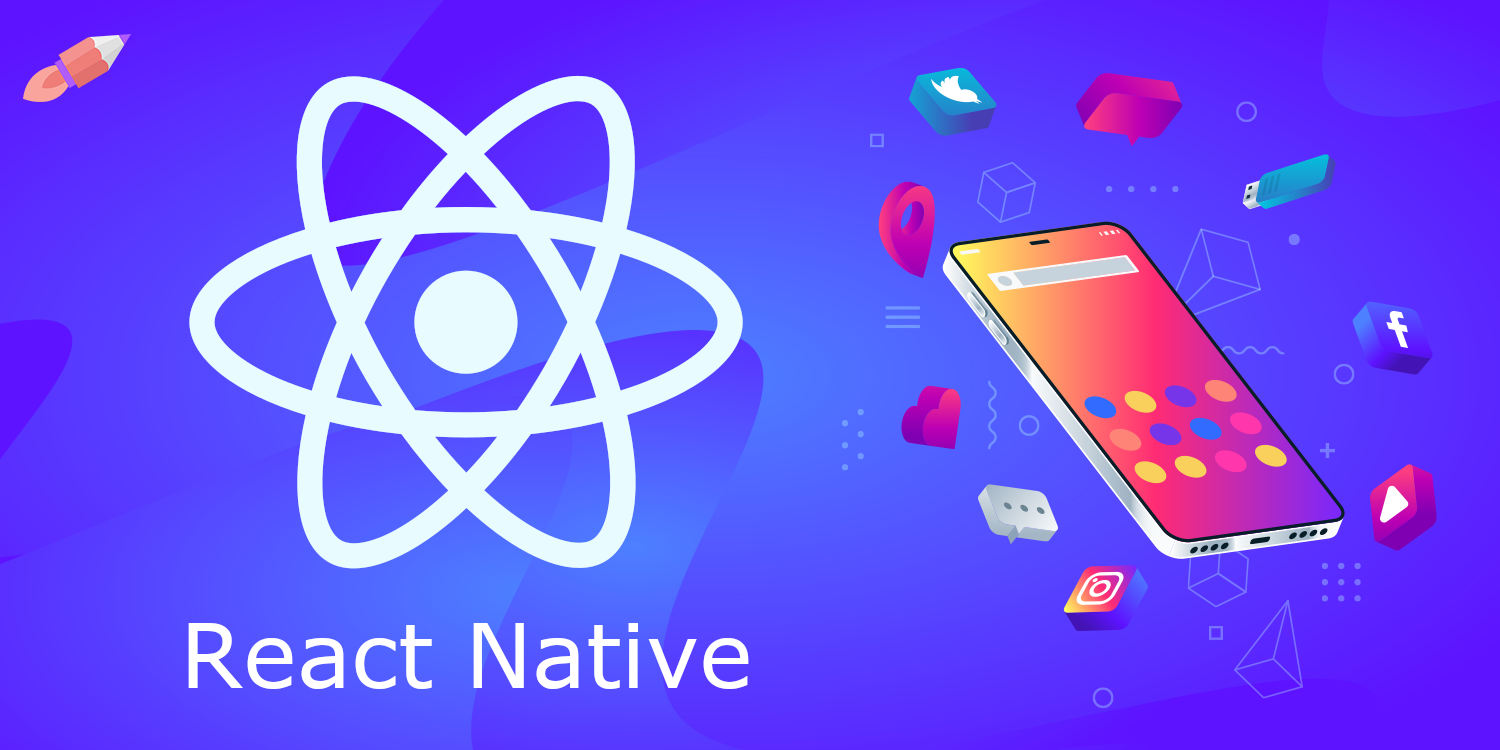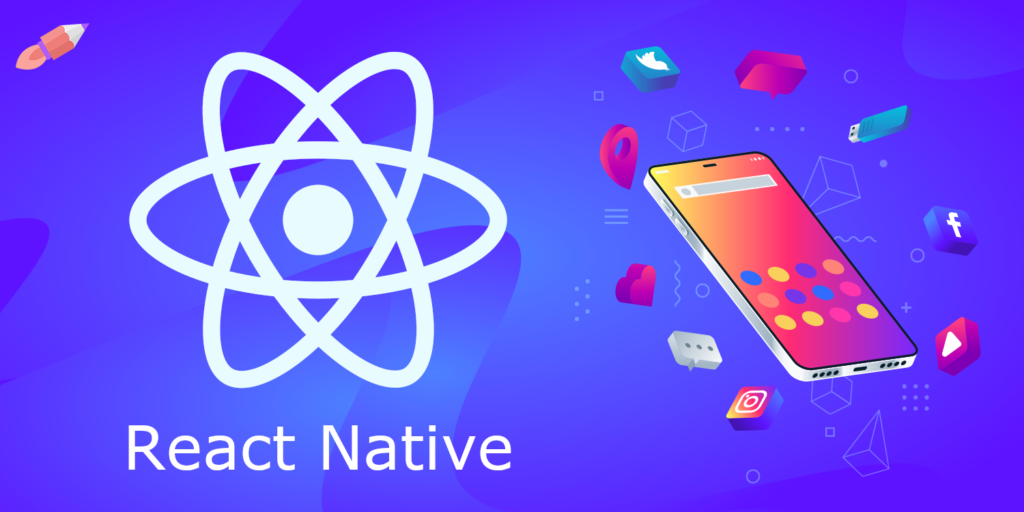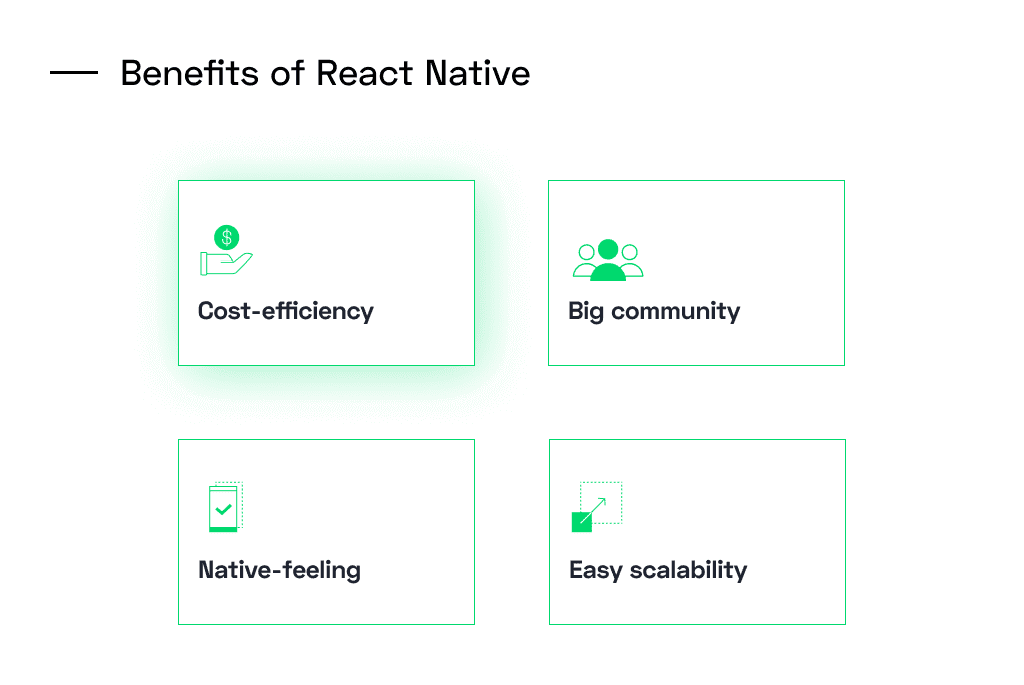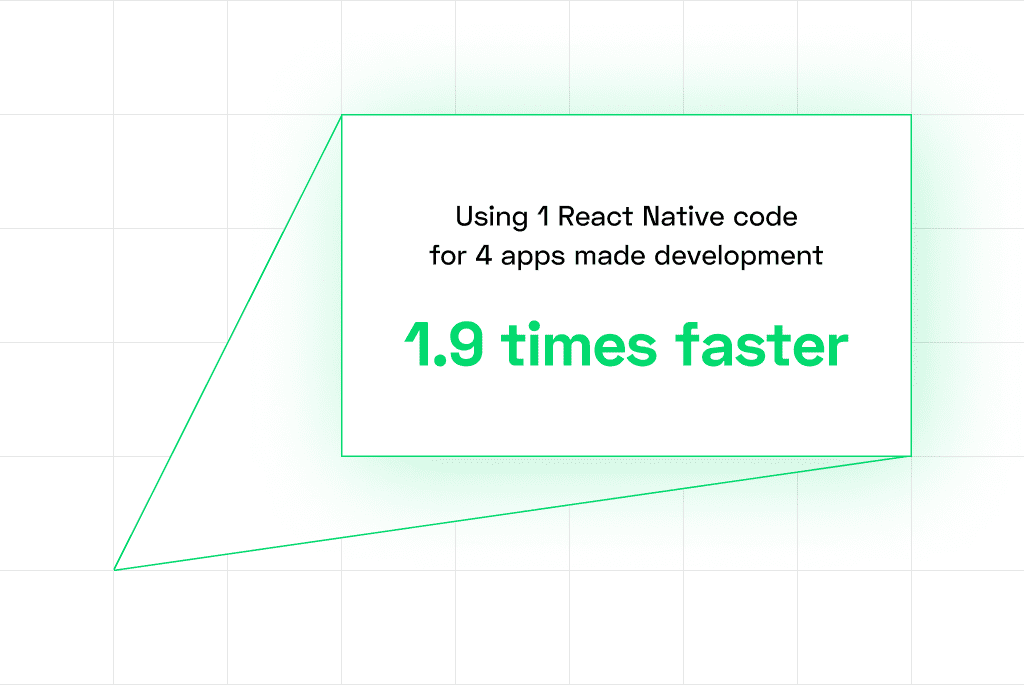
React Native is a cross-platform mobile application framework released by Facebook in 2015. In its simplest definition, React Native allows developers to write code once and have it work on both iOS and Android platforms. This means that developers can create apps that look native on both platforms without having to learn two different sets of code.
The advantages of using React Native are numerous. For example, it allows developers to save time and money by cutting the need for two separate apps, as well as drastically reducing development cycles. Additionally, React Native offers great performance due to its use of native components in the UI layer. This means that users can enjoy a smooth experience no matter what device they’re using.
React Native also provides several advantages for developers. For instance, it facilitates the use of commonly used coding languages such as JavaScript and HTML5, meaning developers don’t need to learn new languages to create apps with React Native. It also has an active open source community which makes finding solutions to common problems much easier.

As 2023 approaches there is no doubt that React Native will continue to be a great choice for mobile developers and web developers. Its advantages in terms of cost and development speed are unmatched, while its use of native components ensures that users get the best experience possible. Therefore, if you’re looking to develop a mobile app in 2023 then React Native is worth considering.
Benefits of React Native
One of the main benefits of React Native is its ease of use for developers. As mentioned above, it allows developers to write code once and have it work on both platforms without having to learn two different sets of code. This makes developing apps much quicker and more efficient, resulting in shorter development cycles and lower costs overall.

It Saves You Money
Using React Native can also save you money. This is because you don’t need to hire two separate teams of developers to create apps for iOS and Android platforms. Additionally, because React Native is open source there are no extra licensing fees needed, which can be a significant cost saving.
It’s Easy to Maintain
Another key advantage of React Native is its ease of maintenance. As it uses native components, the code for both iOS and Android platforms will be identical, making debugging and making changes much easier. This means that developers can make quick changes or fix bugs without having to learn two different sets of code.
It’s Highly Customizable
As React Native utilizes JavaScript, developers can customize apps to their specific needs. This is great for apps that require complex or custom features, as developers can easily add them without having to start from scratch.
You Will Always Find Developers to Support Your App

Due to the large number of developers who use React Native, you will always find someone who can help with troubleshooting and support your app. This makes launching apps much easier and ensures that problems can be solved quickly.
You Can Easily Scale Your App
React Native also allows developers to easily scale their apps as they grow. The codebase can be easily updated and maintained for both iOS and Android platforms, meaning you won’t have to write two separate versions of the same app.
Your App Feels More Native
As React Native utilizes native components, it ensures that users get the best experience possible. This means that apps created with React Native feel more “at home” on each platform, resulting in a better user experience overall.
Pros and Cons of React Native

While React Native is an excellent choice for mobile application development, it’s not without its drawbacks. Here are some of the pros and cons of using React Native.
Pros
- Cross-platform compatibility
- Great performance due to native components
- Easily maintained codebase
- High levels of customizability
- Large open source community
- Easy to scale apps
- Feels more native
Cons
- Steep learning curve
- Not suitable for complex animations or games
- Limited third party libraries and components available
- Potentially slower than native development in certain cases.
Overall, React Native is a great choice for mobile application development in 2023. It offers numerous advantages such as cross-platform compatibility, great performance, and easy maintenance that make it an ideal choice for developers. However, you should also keep in mind some of the drawbacks before making a decision.
When selecting a mobile framework for your project, consider both the pros and cons of React Native carefully before making a decision. If you do decide to use it, you can be sure that your project will be successful in 2023 and beyond.
Is React Native Right for Your App?
When deciding on a mobile framework for your project, be sure to think carefully about whether or not React Native is right for you. Do some research into the pros and cons of using React Native as well as the kinds of apps it can best be used for. Consider how complex your app will be and if native development would offer better performance in certain cases.
At the end of the day, selecting a mobile framework can be an important decision. So make sure to do your research and consider all aspects before making a decision. React Native may not be right for every project, but if it is then you’ll have access to some great features and advantages that will help ensure your app’s success in 2023 and beyond.
